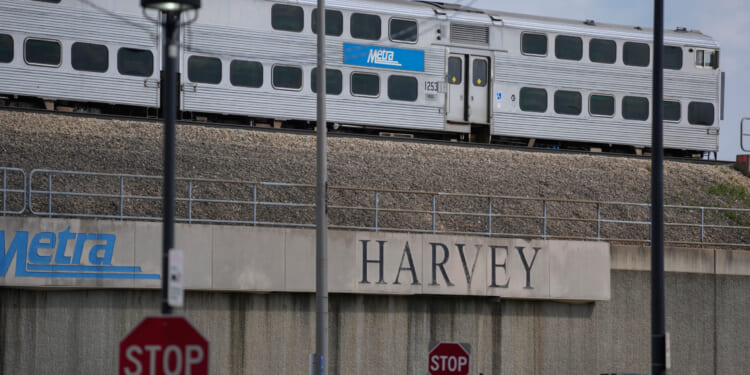Harvey is seeking state aid under Illinois’ Financially Distressed City Law, but without pension reform, state oversight offers little hope to fix its $164M crisis.
Last week, the city of Harvey unanimously approved the first step toward seeking state aid under Illinois’ Financially Distressed City Law. This decision comes after years of financial distress resulting in reduced city services and $164 million in debt.
The Financially Distressed City Law allows for the creation of a financial advisory authority for a distressed home rule municipality, which is a city, village or unincorporated township with more than 25,000 residents. The financial advisory authority has the power to reject loans, budgets and contracts, and otherwise oversee the city’s finances. In other words, the buck stops with them.
The law allows the municipality’s advisory authority or commission to specifically request aid from the Illinois Finance Authority in the form of loans financed by debt obligations issued by the authority.
Records indicate that only one other municipality, East St. Louis, has sought state oversight under this act since it passed in 1990.
There are several reasons this solution hasn’t been sought by municipalities more often. One is the strict requirements for qualification. A city must be:
- In the top 5% of home rule municipalities in aggregate property tax rates
- In the bottom 5 percent of home rule municipalities in per capita tax yield, which creates confusion about who qualifies to seek refuge.
The Financially Distressed City Law could provide some temporary relief it doesn’t address the underlying problem plaguing Illinois’ local governments: massive public pension debt.
Under the law, the financial advisory authority has no power to impair contracts or obligations of the city and may only approve or reject a multiyear employment or collective bargaining agreement during the first year of the contract.
The state’s hands are tied because of the Illinois Supreme Court’s interpretation of the Illinois Constitution’s pension protection clause and their own mounting pension debt, estimated at $144 billion. With the state facing the nation’s worst pension crisis by almost every measure, it’s not in the position to bail out localities, even if it could.
In 2018, Harvey had to resort to laying off police and firefighters to make up for lost money as a result of garnished tax revenue. Even now, seeking state aid, they will be furloughing even more city employees. Until the Illinois Constitution is amended to allow pension reform, current state oversight laws will offer little hope to struggling Illinois communities.










